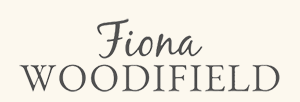Since I was a small child, I remember being entranced by the fact that wherever you go and whatever you have to do, if you have a book with you, you have ownership of a portal to another world. A book is a compact magical door, which enables the reader to escape from reality and voyage far, far away to other lands, cultures and destinations. A book allows you to travel when there is nowhere else to go.
When things go wrong in your own life, which they do quite frequently in mine anyway, a book enables us to run away, to become involved, albeit temporarily in someone else’s story. I guess this is why so many readers get that feeling of desolation when they finish reading a particularly good book. There is that sensation of loss, the ‘oh,’ that bump back to reality. But then there’s always the joy of knowing another book is waiting, a fresh new world ready for exploration.
This is especially true at the moment with the uncertainty of Brexit, political conflict, pandemics and global warming. Through all these somewhat scary world events, there is always the comfort of being able to escape back into the reassuring world of fiction. This is why as a writer, I sometimes become frustrated when there is criticism and an attitude of snobbery towards chicklit or uplit or whatever you want to call it. This genre of women’s writing is incredibly important. It is ironic that chick-lit is often dismissed as inconsequential when in reality it plays such a vital part in mental health.
This was even the case in Jane Austen’s time when there were wars, difficulties with the Regency, the loss of her father and potential homelessness. Did Jane write about any of this? Not exactly, although most keen readers can spot the true depth of feeling and personal sadness beneath the comedy.
Soldiers in World War I, or the Janeites, named by Rudyard Kipling in his famous poem, secretly found solace losing themselves in the far off, quintessentially English landscape of regency romance. Austen must have provided a truly wistful read for these brave men, mentally trying to escape from the horrors of the battlefield. On a different level, my family has had it’s own struggles and difficulties, especially with two of my daughter’s having major health conditions, the eldest of whom is also autistic and was without diagnosis for many years, resulting in an eating disorder. Yet when things have got really tough, I have taken refuge in Jane Austen and the work of other writers ,who have provided a happy haven for me to hide in for a while.
This is what inspired me to write The Jane Austen Dating Agency in the first place. We are all suckers for a happy romance and why not? Who on earth wants to live in the real world? Whilst writing this novel, instead of worrying at every moment about my own problems, I spent plenty of time trying to help Sophie figure out hers. They were much more entertaining than my own!
I very much hope that in The Jane Austen Dating Agency, I have provided readers with their own escape route into another happier, somewhat comic, but nevertheless reassuring world of romance and storytelling.


